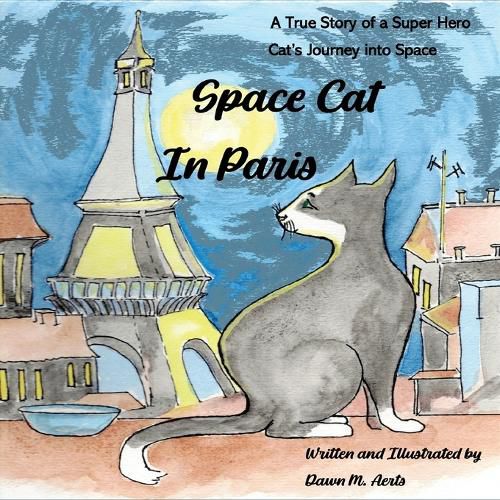Readings Newsletter
Become a Readings Member to make your shopping experience even easier.
Sign in or sign up for free!
You’re not far away from qualifying for FREE standard shipping within Australia
You’ve qualified for FREE standard shipping within Australia
The cart is loading…






This title is printed to order. This book may have been self-published. If so, we cannot guarantee the quality of the content. In the main most books will have gone through the editing process however some may not. We therefore suggest that you be aware of this before ordering this book. If in doubt check either the author or publisher’s details as we are unable to accept any returns unless they are faulty. Please contact us if you have any questions.
The Story of 'Catnick' and the French Space Program of 1963
In 1963, a team of cats were adopted and trained for flight aboard a rocket ship to be launched into inter-stellar space. The training for the Astro-cats included tests in handling high-g-forces and full- acceleration thrust. Felicette was eventually selected as the one feline who could successfully transmit results back to Mission Command and survive space flight.She was a cat with the 'right stuff.'
Space program scientists chose 'Catnick' for her calm and brave disposition. After months of preparation, Felicette was launched on a suborbital flight aboard a Veronique AGI (sounding) rocket, from the Saharan Desert, Algeria, October 16th, 1963. On that day, she reached an altitude of 97 miles above the earth and experienced five minutes of weightlessness - a first for the space mission and any cat.
The short but critical flight ended after 15 minutes when her capsule parachuted safely back to earth. This brave feline was honored as the only cat to successfully travel into space as part of the French National Space Program. She was later commemorated on national postage stamps for her service, sacrifice, and a return under extreme conditions.
Her contribution, with the animals of space research, helped pave the way for today's understanding of space flight conditions and the impact it would have on human astronauts. A bronze sculpture was dedicated to 'Catnick' on December 19th, 2018, and stands at the International Space University, Strasbourg, France.
There you will find Felicette perched on top of the world, eyes gazing upward towards the Moon - the true story of "A Space Cat in Paris."
$9.00 standard shipping within Australia
FREE standard shipping within Australia for orders over $100.00
Express & International shipping calculated at checkout
This title is printed to order. This book may have been self-published. If so, we cannot guarantee the quality of the content. In the main most books will have gone through the editing process however some may not. We therefore suggest that you be aware of this before ordering this book. If in doubt check either the author or publisher’s details as we are unable to accept any returns unless they are faulty. Please contact us if you have any questions.
The Story of 'Catnick' and the French Space Program of 1963
In 1963, a team of cats were adopted and trained for flight aboard a rocket ship to be launched into inter-stellar space. The training for the Astro-cats included tests in handling high-g-forces and full- acceleration thrust. Felicette was eventually selected as the one feline who could successfully transmit results back to Mission Command and survive space flight.She was a cat with the 'right stuff.'
Space program scientists chose 'Catnick' for her calm and brave disposition. After months of preparation, Felicette was launched on a suborbital flight aboard a Veronique AGI (sounding) rocket, from the Saharan Desert, Algeria, October 16th, 1963. On that day, she reached an altitude of 97 miles above the earth and experienced five minutes of weightlessness - a first for the space mission and any cat.
The short but critical flight ended after 15 minutes when her capsule parachuted safely back to earth. This brave feline was honored as the only cat to successfully travel into space as part of the French National Space Program. She was later commemorated on national postage stamps for her service, sacrifice, and a return under extreme conditions.
Her contribution, with the animals of space research, helped pave the way for today's understanding of space flight conditions and the impact it would have on human astronauts. A bronze sculpture was dedicated to 'Catnick' on December 19th, 2018, and stands at the International Space University, Strasbourg, France.
There you will find Felicette perched on top of the world, eyes gazing upward towards the Moon - the true story of "A Space Cat in Paris."